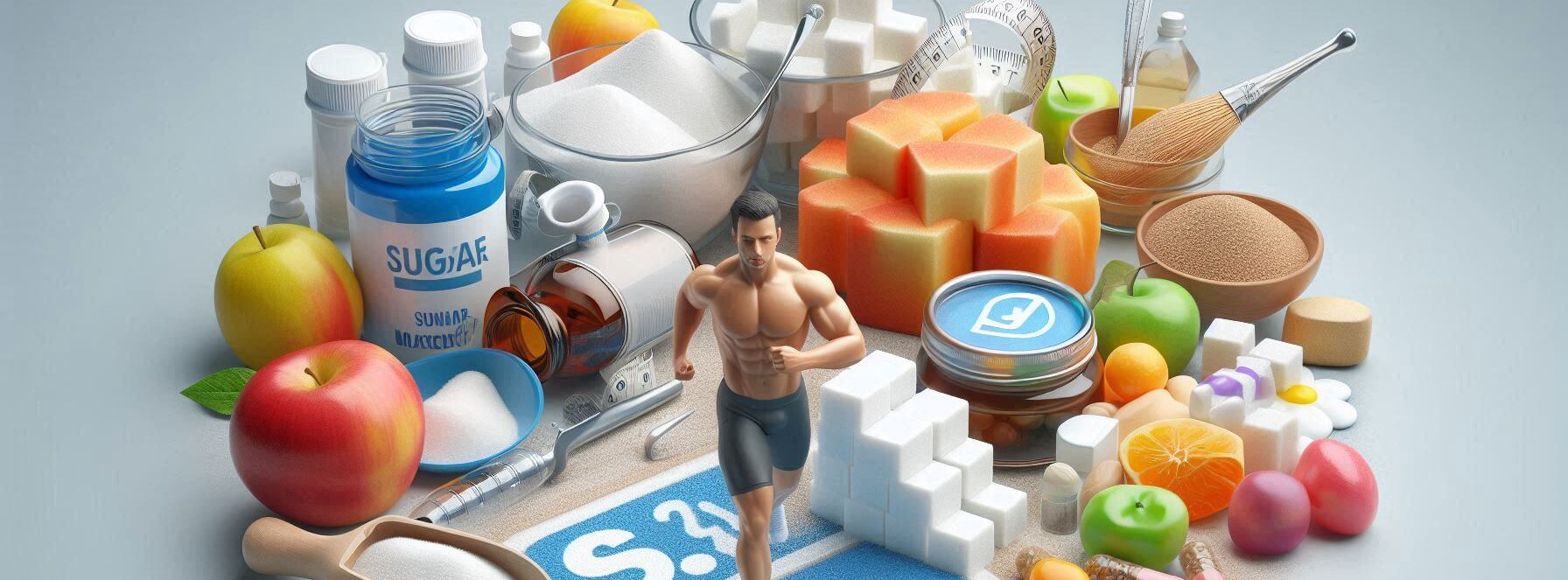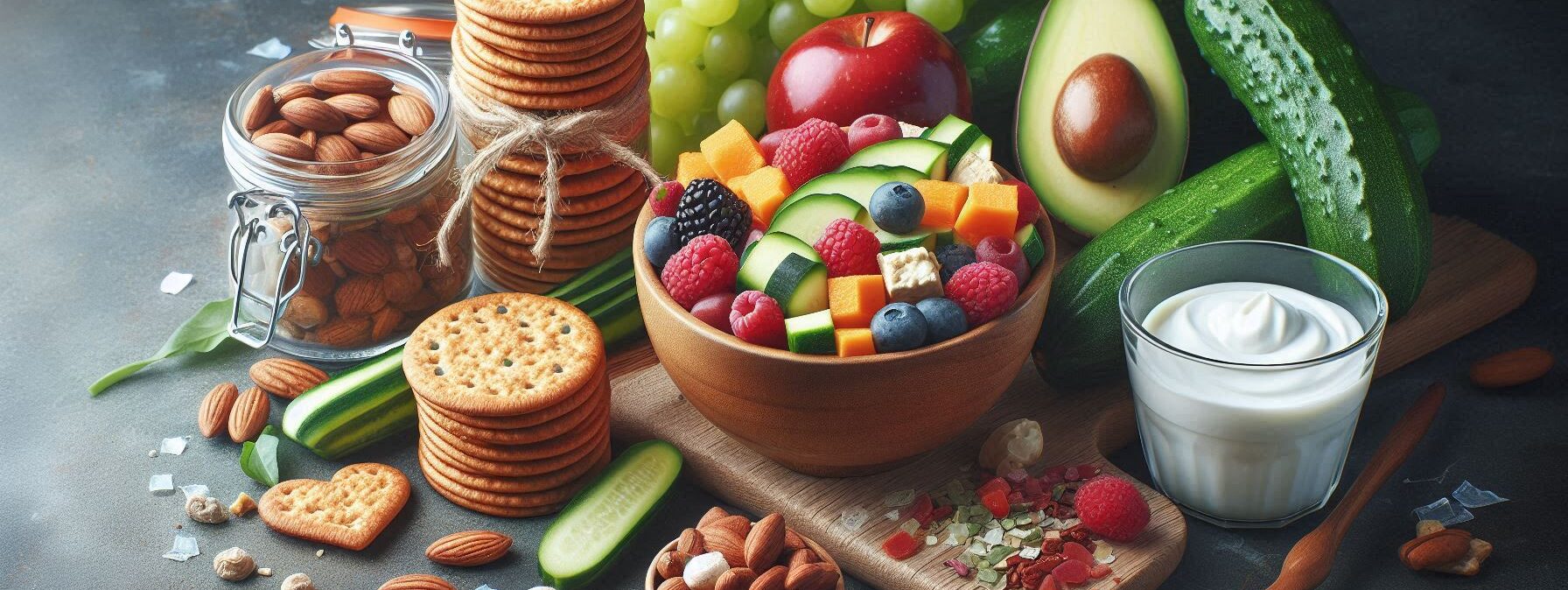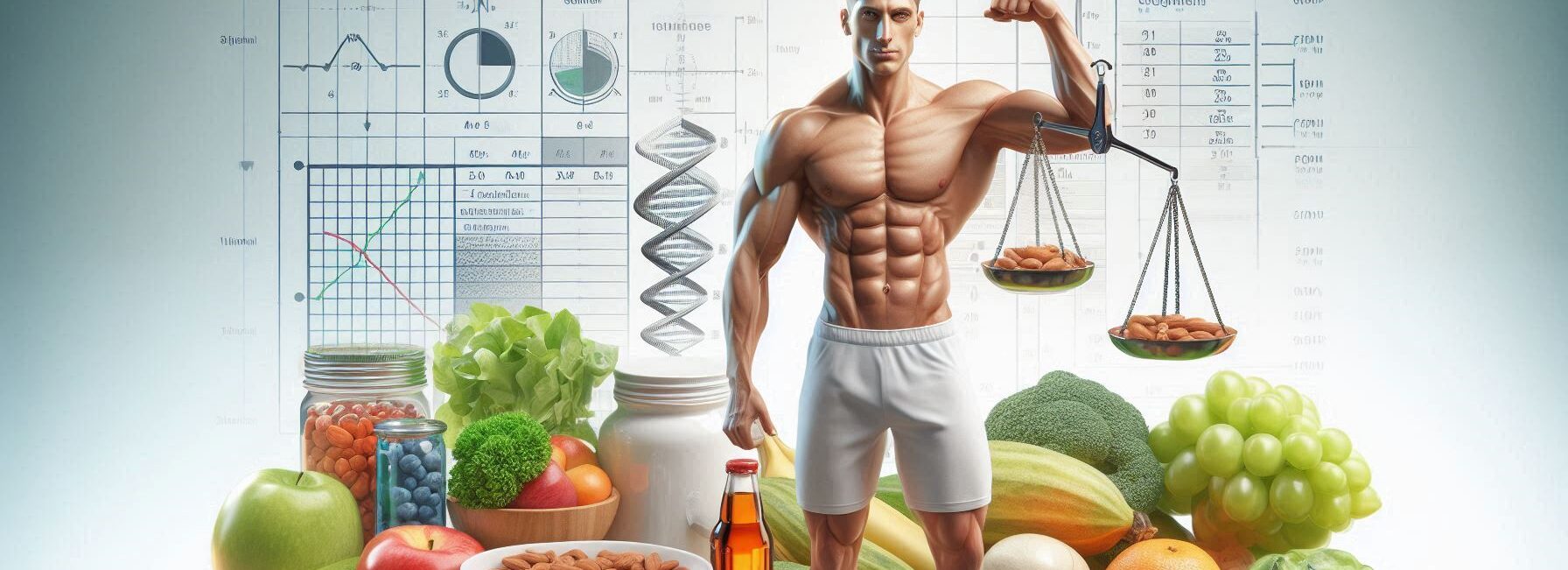Let’s talk about sugar. Ah, sweet, sweet sugar—nature's way of telling us that life can be delicious and also incredibly confusing.
One minute you’re happily munching on a chocolate bar, and the next, you're staring at your bathroom scale like it just insulted your mother.
So what’s the deal with sugar and weight loss? Grab a snack (preferably not one loaded with sugar) as we dive into this sticky situation.
Top Takeaways and Key Concepts
Differentiate sugars: Favor natural sugars in fruits and dairy; limit added sugars in processed foods.
Understand sugar’s impact: Excess sugar increases insulin, promotes fat storage, and may cause insulin resistance.
Watch for hidden sugars: Read labels for high fructose corn syrup, cane sugar, and other sweeteners.
Manage cravings: Identify habitual triggers and replace sweets with healthier alternatives to reduce sugar dependence.
Practice moderation: Allow occasional treats to prevent binge-eating while maintaining a balanced diet.
Summary of This Article
The article explains how sugar affects weight loss and overall health, emphasizing the differences between natural and added sugars. Excess sugar consumption increases insulin, promotes fat storage, and can lead to insulin resistance. Hidden sugars in sauces, bread, and processed foods often sabotage diet efforts, making label-reading essential. Managing cravings through healthier alternatives, such as fruit or yogurt, helps break habitual sugar patterns. Ultimately, moderation—not total avoidance—is key, allowing occasional treats while maintaining a balanced, sustainable approach to nutrition and weight management.
1. Understanding Sugar: The Sweet Enemy

First things first: not all sugars are created equal. There are natural sugars found in fruits and dairy, which are basically nature’s candy bars—minus the wrappers and questionable ingredients.
Then there are added sugars lurking in everything from soda to those delightful cookies that seem to call my name every time I walk by the pantry.
Honestly, if you’ve ever had a cookie whisper sweet nothings to you while trying to resist its sugary charm, you know exactly what I’m talking about!
But here’s the kicker: added sugars can sabotage your weight loss efforts faster than you can say “I’ll start my diet tomorrow.” They provide empty calories without any nutritional value, leading to that frustrating cycle of hunger shortly after eating.
2. How Sugar Affects Your Body
Now let’s get scientific for a second (don’t worry; I’ll keep it simple). When you consume sugar, your body releases insulin—a hormone that helps regulate blood sugar levels.
Insulin is like that overzealous friend who wants to help but sometimes goes overboard. It tells your body to store fat instead of burning it.
You might think, “Hey, what's wrong with storing fat?” Well, when you're trying to lose weight, it feels like inviting your ex to a party where everyone else is having fun—awkward and counterproductive!
Plus, too much sugar can lead to insulin resistance over time, which means even more stubborn fat hanging around like an unwanted house guest.
3. The Hidden Sugars You Didn’t Know About
If there's one thing I've learned in my quest for healthy living (and by “healthy living,” I mean occasionally swapping out pizza for salad), it's that sugar hides better than a ninja in a dark alley.
It sneaks into sauces, dressings, and even bread—yes, bread! Who knew our beloved carbs could betray us?
So how do we combat these stealthy sugars? Start reading labels like they’re the latest gossip magazine!
Look out for terms like high fructose corn syrup or cane sugar—they're usually up to no good. By being vigilant about hidden sugars in everyday foods, you'll be taking control of your dietary destiny!
4. Sugar Cravings: The Battle Within
Let's face it: cravings can feel more powerful than my desire for a nap after lunch (which is saying something!).
When you've cut back on sugar or gone cold turkey (not literally; please don’t freeze any turkeys), those cravings hit hard—like an unexpected thunderstorm during a picnic.
Interestingly enough, these cravings often stem from habits rather than actual hunger. If you’ve trained yourself to reach for sweets every afternoon at 3 PM while working from home (guilty!), breaking that cycle takes some serious willpower—or maybe just finding healthier alternatives that satisfy those sweet tooth urges without derailing your progress.
5. Finding Alternatives That Satisfy
Speaking of alternatives—thank goodness they exist! Instead of reaching for that doughnut sitting on the counter looking all tempting (seriously doughnuts should come with warning labels), consider satisfying your sweet tooth with fruit or yogurt drizzled with honey.
By the way, have you ever tried baking with mashed bananas instead of refined sugar? It’s like magic! Not only does it add sweetness but also makes me feel slightly less guilty when indulging in dessert-like snacks—I mean…who doesn’t want dessert disguised as health food?
6. Moderation Is Key
Here’s where things get tricky: moderation is essential when dealing with sugar if we want our waistlines—and sanity—to stay intact!
Cutting out all forms of sweetness may sound noble but let’s be real; it often leads us straight down the path toward binge-eating ice cream directly from the container at midnight.
Instead of swearing off sweets forever (which sounds exhausting), try allowing small treats occasionally so they don’t become forbidden fruit—or worse yet—the ultimate temptation monster hiding under your bed!
Conclusion: Make Peace with Sugar
In conclusion—or as I prefer to call it—the grand finale—it’s important not only to recognize how sugar impacts our weight loss goals but also how we approach our relationship with it moving forward.
Embrace balance rather than deprivation because nobody wants their diet journey filled with regret…and sadness over missed cupcakes!
So go ahead; enjoy life while keeping an eye on those sneaky sugars lurking around every corner—and remember: laughter burns calories too!
Suggested External Resources:
The Truth About Sugar
https://www.healthline.com/nutrition/the-truth-about-sugar
Sugar Addiction: Symptoms & Treatment
https://www.webmd.com/diet/features/sugar-addiction
How Sugar Affects Your Body
https://www.mayoclinic.org/healthy-lifestyle/nutrition-and-healthy-eating/in-depth/sugar/art-20045509
Frequently Asked Questions
What is the difference between natural and added sugars?
Natural sugars come from whole foods like fruits and dairy, while added sugars are introduced during processing and offer little nutritional value. Limiting added sugars supports weight loss.
How does sugar impact weight loss?
Excess sugar increases insulin levels, encouraging fat storage and making weight loss harder. Over time, high intake may also contribute to insulin resistance.
Where are hidden sugars commonly found?
Hidden sugars appear in items like sauces, bread, dressings, and packaged snacks. Reading ingredient labels helps identify sweeteners you may not expect.
Why do sugar cravings happen?
Sugar cravings often stem from habits, stress, or emotional triggers rather than true hunger. Breaking routines and using healthier substitutes can help reduce them.
What are healthier alternatives to sugary snacks?
Fruits, yogurt with a small drizzle of honey, or snacks sweetened with natural ingredients provide satisfaction without excessive sugar intake.
Should sugar be completely eliminated for weight loss?
No. Moderation is more sustainable than elimination. Allowing small treats occasionally helps prevent binge eating and supports long-term success.
How can I reduce my daily sugar intake?
Focus on whole foods, read labels carefully, choose unsweetened products, and replace sweet snacks with nutritious alternatives to lower total sugar consumption.

Kevin Collier is a dedicated health enthusiast and writer for FatFAQ.com, where he shares his expertise on weight loss and maintaining a healthy lifestyle. With a focus on practical tips and evidence-based strategies, Kevin aims to inspire readers to achieve their health goals through informed choices. His engaging articles cover nutrition, exercise, and holistic wellness, providing valuable resources for anyone looking to improve their well-being. Passionate about helping others transform their lives, Kevin advocates for sustainable habits that promote lasting health and vitality.




